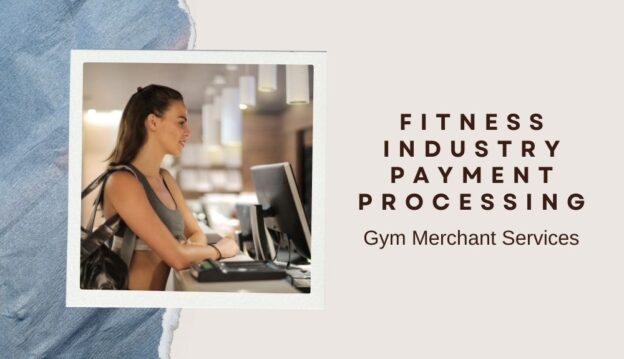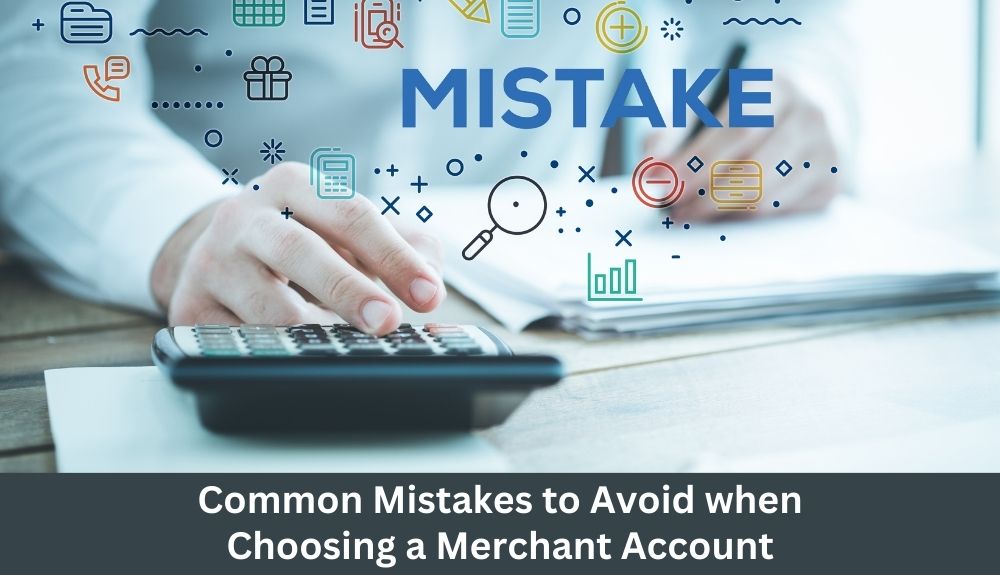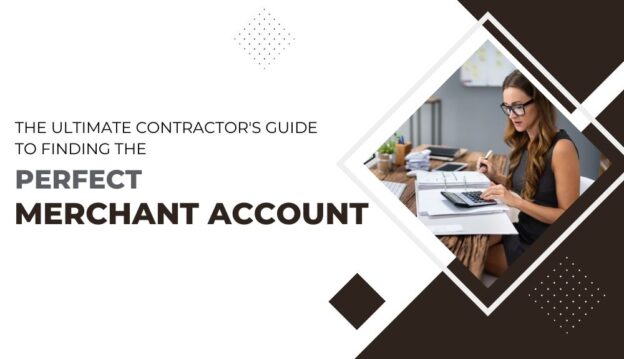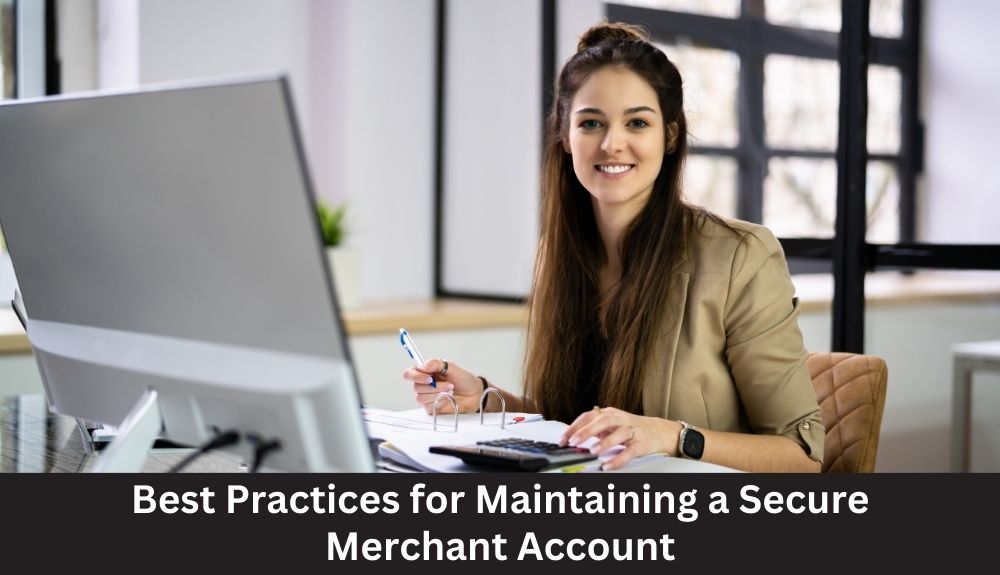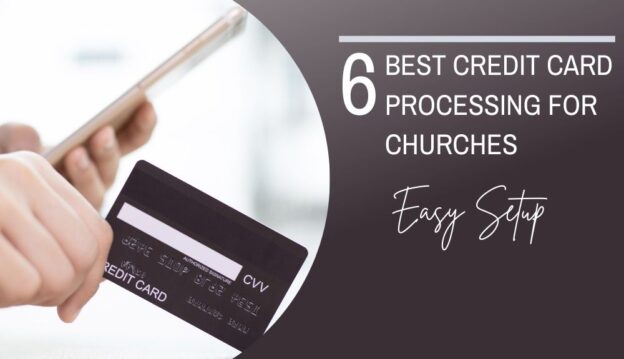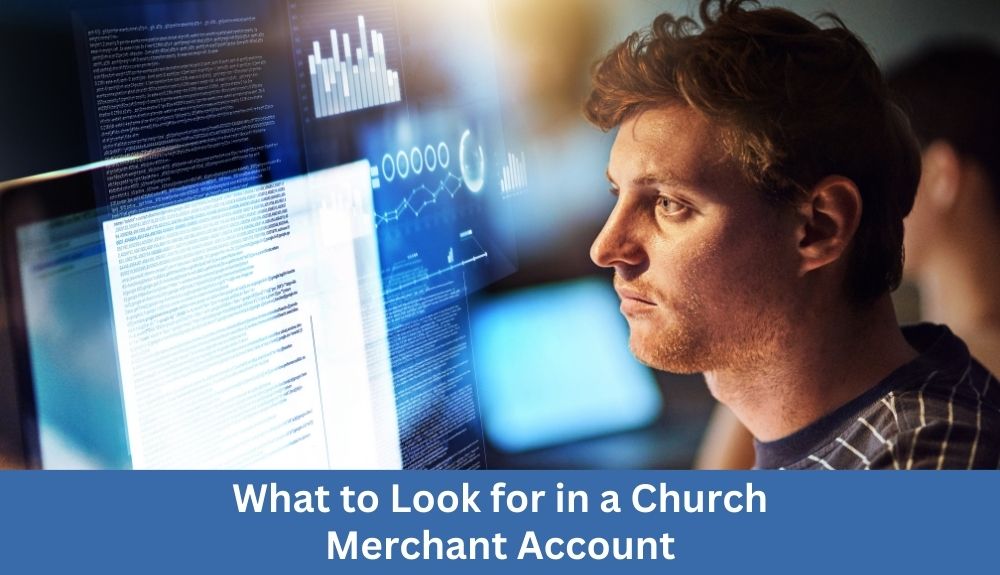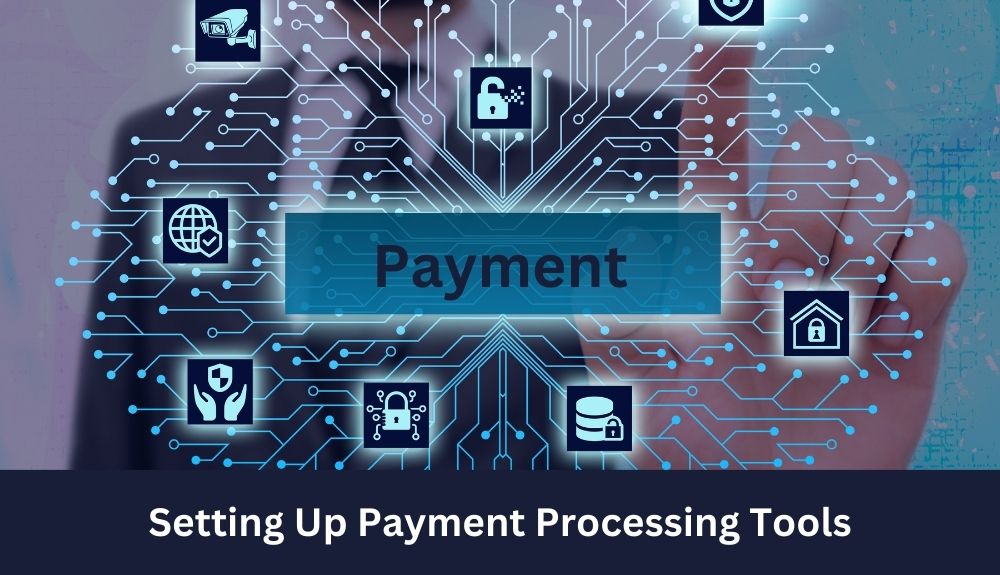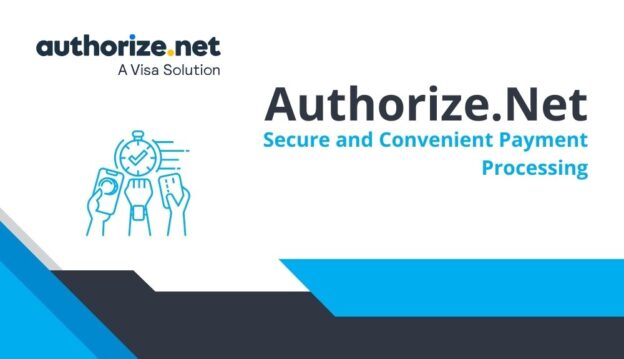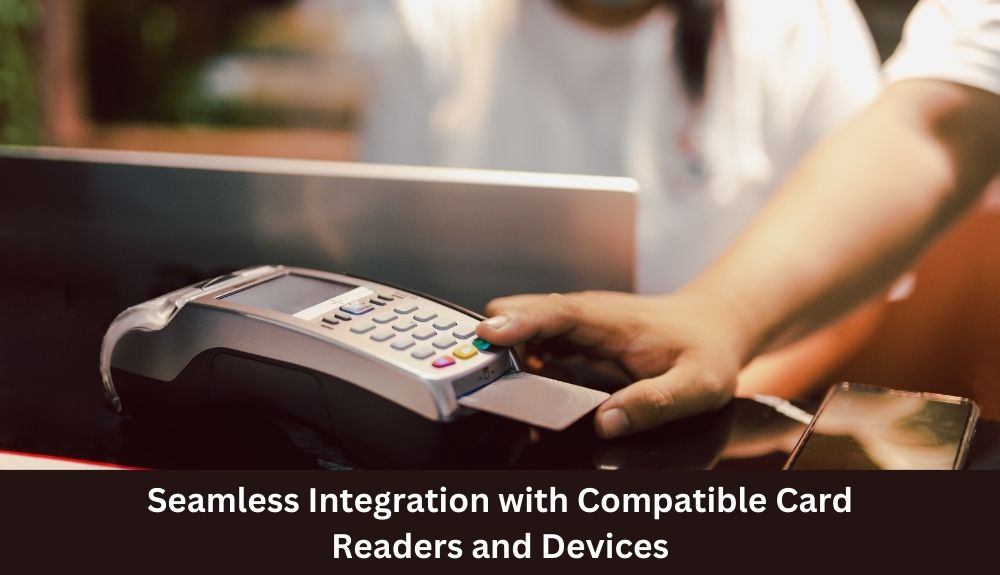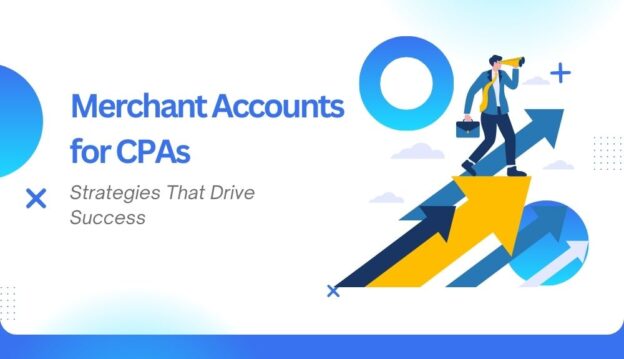Are you a contractor looking for the perfect merchant account? Tired of sifting through endless options and confusing jargon? Look no further! In this comprehensive guide, we will walk you through the process of finding the ideal merchant account for your contracting business. Whether you’re just starting out or looking to switch providers, we’ve got you covered.
In this blog, we’ll dive into the world of merchant accounts, demystifying the terminology, highlighting the key factors to consider, and providing tips to make an informed decision. From understanding transaction fees and processing rates to evaluating security features and customer support, we’ll leave no stone unturned.
1. Understanding Merchant Accounts
In today’s digital age, every business, including contractors, needs to be able to accept electronic payments from customers. To do this effectively and securely, it’s crucial to understand the concept of merchant accounts. In this section, we will delve into the details of merchant accounts, their purpose, and how they work.
1. What is a Merchant Account?
A merchant account is a type of bank account that allows businesses to accept payments via credit card, debit card, or other electronic payment methods. It serves as an intermediary between the business, the customer, and the payment processor, ensuring a smooth and secure transaction process.
2. Why Do Contractors Need Merchant Accounts?
Having a merchant account offers numerous advantages for contractors. Firstly, it enables them to accept a wide range of payment options, which caters to the varied preferences of their customers. By providing convenient payment methods, contractors can enhance customer satisfaction and increase sales.
Moreover, merchant accounts provide contractors with the ability to process online transactions, making it easier for them to do business with customers who prefer to pay remotely. This enables contractors to expand their reach and tap into new markets, ultimately boosting their revenue potential.
3. Choosing the Right Merchant Account Provider
When it comes to selecting a merchant account provider, contractors must consider several factors to ensure they find the perfect fit. Here are some key points to keep in mind:
Fees and Pricing: Compare the transaction fees, monthly fees, and any additional charges associated with the merchant account. It’s essential to have a clear understanding of the costs involved to avoid any surprises down the line.
Payment Options: Check if the merchant account provider supports all the payment methods you wish to accept. This could include credit cards, debit cards, mobile payments, or even cryptocurrency, depending on your business requirements.
Security: Look for a provider with robust security measures in place to protect both your business and your customers’ financial information. Make sure they are compliant with industry standards, such as Payment Card Industry Data Security Standard (PCI DSS) compliance.
Integration and Support: Assess the ease of integrating the merchant account with your existing payment system and website. Additionally, consider the level of customer support provided by the provider, as prompt assistance can be crucial in resolving any issues that may arise.
2. Importance of Choosing the Right Merchant Account
In the dynamic world of contracting, the importance of choosing the right merchant account cannot be overstated. A merchant account serves as the gateway for your business transactions, allowing you to accept payments from clients and customers with ease. It plays a vital role in ensuring the smooth flow of cash and maintaining a healthy financial position.
But why is it so crucial to select the perfect merchant account? Let’s delve into the reasons:
1. Security and Fraud Protection: The right merchant account offers robust security measures to safeguard your transactions and mitigate the risk of fraud. It ensures that sensitive customer data, such as credit card details, are encrypted and protected from unauthorized access. With high-level security protocols in place, you can establish trust with your clients and protect your reputation.
2. Seamless Payment Processing: A well-chosen merchant account seamlessly integrates with your contracting business, providing efficient payment processing options. Whether you’re accepting payments in person, online, or through mobile devices, the right account enables swift and convenient transactions. This improves customer satisfaction and enhances your overall business operations.
3. Competitive Pricing: Selecting the right merchant account allows you to access competitive pricing structures, reducing your transaction costs. By carefully assessing the rates, fees, and pricing models offered by different providers, you can maximize your profits and optimize your financial performance.
4. Scalability and Flexibility: As a contractor, your business may experience fluctuations in payment volumes or expand over time. The right merchant account offers scalability and flexibility to accommodate your evolving needs. Whether you need to handle a sudden surge in transactions or explore new business opportunities, a suitable account will adapt to your requirements without any hassle.
5. Access to Advanced Tools and Analytics: Choosing the right merchant account grants you access to valuable tools and analytics that can empower your contracting business. These tools help you track payments, identify trends, and gain insights into customer behaviors. By leveraging data-driven decision-making, you can streamline your operations, optimize your revenue, and stay ahead of the competition.
💡 key Takeaway: Selecting the perfect merchant account is of utmost importance for contractors. It ensures security, seamless payment processing, competitive pricing, scalability, and access to advanced tools and analytics, ultimately enhancing the overall financial performance and customer satisfaction.
3. Factors to Consider When Choosing a Merchant Account Provider
When it comes to finding the perfect merchant account provider for your contracting business, there are several important factors to consider. By carefully evaluating these factors, you can make an informed decision that aligns with your specific business needs and goals.
1. Fees and Pricing Structures:
Look for a provider that offers competitive rates and transparent pricing structures.
Consider the various fees associated with the account, such as transaction fees, monthly fees, and chargeback fees.
Determine whether the provider imposes any additional costs for specific services or features.
2. Security and Fraud Prevention:
Prioritize a provider that offers robust security measures to protect sensitive customer data.
Look for features like secure payment gateways, encryption technology, and fraud detection tools.
Ensure the provider is compliant with industry standards, such as PCI DSS (Payment Card Industry Data Security Standard).
3. Integration and Compatibility:
Consider whether the provider’s payment processing system can seamlessly integrate with your existing business software or platforms.
Check if the provider offers plugins or APIs that enable easy integration with popular e-commerce platforms or point-of-sale (POS) systems.
Ensure the compatibility of the provider’s solutions with the devices your contractors use for transactions, such as mobile devices or card readers.
4. Customer Support and Service:
Evaluate the provider’s customer support options, such as availability, response time, and communication channels (phone, email, chat).
Read reviews and testimonials from other businesses to gauge the provider’s reputation for providing excellent customer service.
Consider whether the provider offers resources or educational materials to help you navigate any issues or queries that may arise.
💡 key Takeaway: When choosing a merchant account provider for your contracting business, carefully consider factors such as fees, security measures, compatibility, and customer support.
4. Researching Merchant Account Providers
When it comes to finding the perfect merchant account for your business, thorough research is essential. Researching different merchant account providers allows you to compare their offerings and select the one that aligns best with your specific needs. Here are some key steps to help you navigate the research process effectively:
1. Identify Your Business Requirements:
Determine the nature of your business, its size, and its future growth potential.
Consider the types of payment methods you want to accept (credit cards, debit cards, mobile payments, etc.).
Evaluate the average transaction volume and value for your business.
2. Seek Recommendations and Referrals:
Talk to other business owners in your industry who have successfully set up merchant accounts.
Reach out to professional associations or trade groups for recommendations.
Ask your financial institution for suggestions or partnerships they may have with merchant account providers.
3. Assess Provider Reputation and Credentials:
Look for merchant account providers with a solid reputation and a proven track record.
Check for certifications, affiliations with reputable organizations, and awards in the industry.
Review customer testimonials, case studies, or online reviews to gauge customer satisfaction.
4. Compare Fees and Rates:
Request quotes from multiple merchant account providers, ensuring you understand all the associated costs.
Pay attention to transaction fees, monthly minimums, setup fees, statement fees, and any other charges that may apply.
Consider the pricing structure (tiered, interchange-plus, flat rate) and how it aligns with your business model.
5. Evaluate Security and Fraud Prevention Measures:
Inquire about the security measures the merchant account provider employs to protect sensitive customer data.
Ensure the provider complies with Payment Card Industry Data Security Standards (PCI DSS).
Ask about tools and features offered to help mitigate fraud risks and ensure secure transactions.
6. Consider Customer Support and Service Levels:
Assess the level of customer service and technical support the merchant account provider offers.
Look for available support channels such as phone, email, or live chat.
Check if there are additional resources, training materials, or online knowledge bases that can assist you.
Remember, the role of your merchant account provider is crucial in managing your payment processing, so investing time and effort in thorough research is worth it.
5. Types of Merchant Accounts Available
When it comes to finding the perfect merchant account for your contracting business, it’s crucial to understand the different types available to you. Each type has its own features and benefits, so it’s important to evaluate them based on your specific needs and requirements. Here are the most common types of merchant accounts:
1. Retail Merchant Accounts:
Designed for businesses with physical storefronts or brick-and-mortar establishments.
Typically used by contractors who have a physical location where customers can make in-person payments.
Involves the use of a countertop card terminal or point-of-sale (POS) system to process transactions.
2. E-commerce Merchant Accounts:
Geared towards contractors who primarily operate online and have a website or online store.
Allows you to accept payments securely through your website.
Requires integration with an online payment gateway to process transactions.
3. Mail Order/Telephone Order (MOTO) Merchant Accounts:
Ideal for contractors who frequently take orders over the phone or through mail.
Allows you to manually key in credit card information for payment processing.
Involves a virtual terminal or a software-based solution to process MOTO transactions.
4. Mobile Merchant Accounts:
Suited for contractors who are constantly on the move or offer services at various locations.
Utilizes a mobile card reader or a mobile payment app on a smartphone or tablet to accept payments.
Offers convenience and flexibility for accepting payments on the go.
5. High-Risk Merchant Accounts:
Specifically designed for contractors operating in industries considered high-risk by banks.
Common for contractors involved in construction, home improvement, or other trades with higher chargeback or fraud risks.
Provides specialized services to mitigate these risks and ensure secure payment processing.
It’s crucial to carefully assess the nature of your contracting business and consider your specific requirements before choosing a merchant account type. Consulting with a payment service provider or a financial advisor who specializes in merchant accounts can help you make an informed decision.
💡 key Takeaway: Understanding the various types of merchant accounts available is vital in selecting the one that suits your contracting business’s needs and ensures seamless payment processing.
6. Understanding Merchant Account Fees and Pricing Models
One of the most important aspects of finding the perfect merchant account is understanding the fees and pricing models associated with it. As a contractor, it’s crucial to have a clear understanding of how these fees can impact your bottom line and choose a provider that offers transparent and competitive pricing.
Here’s a breakdown of the key fees and pricing models you should be familiar with:
1. Transaction Fees: This fee is charged for each transaction you process through your merchant account. It’s typically a percentage of the transaction amount, plus a small fixed fee for each transaction. Make sure to compare transaction fees across different merchant account providers to find the most cost-effective option for your business.
2. Monthly Fees: Many merchant account providers charge a monthly fee for maintaining your account. This fee covers the cost of providing services such as customer support and account management. Consider the value you receive from these services when evaluating the monthly fee charged by different providers.
3. PCI Compliance Fees: Payment Card Industry Data Security Standard (PCI DSS) compliance is essential for securely processing credit card payments. Some merchant account providers charge a separate fee for ensuring your business remains PCI compliant. Look for providers that offer affordable PCI compliance solutions or include it as part of their standard services.
4. Chargeback Fees: Chargebacks occur when a customer disputes a transaction and requests a refund from their bank. Merchant account providers usually charge a fee for handling chargebacks, which can vary in amount. It’s important to understand how much you’ll be charged for each chargeback and the provider’s process for resolving disputes.
5. Equipment Costs: If you need specific hardware or software to process payments, such as a credit card terminal or point-of-sale system, consider the associated costs. Some providers offer equipment leases or rentals, while others may require an upfront purchase. Evaluate your business needs and budget to determine the most suitable option.
Now let’s dive into the different pricing models you may encounter:
1. Flat-rate Pricing: With this model, you pay a fixed percentage fee on all transactions, regardless of the card type or transaction volume. Flat-rate pricing is often straightforward and easy to understand, making it a popular choice for small businesses or contractors with variable sales volumes.
2. Interchange-plus Pricing: This pricing model breaks down fees into two components: the interchange fee set by card networks and the markup fee charged by the provider.
7. Evaluating Security Measures of Merchant Account Providers
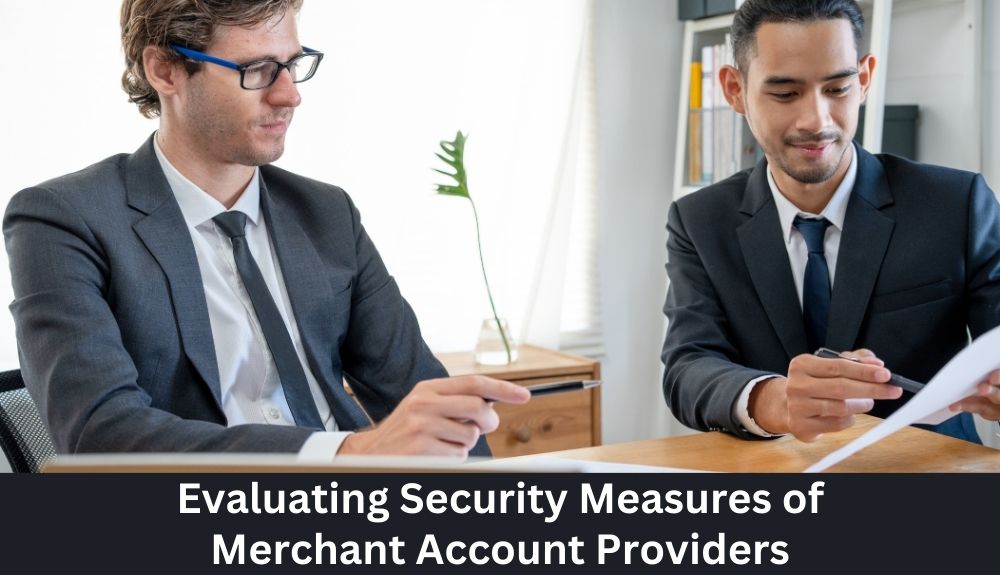
When it comes to choosing the perfect merchant account provider for your contracting business, security should be a top priority. With the increasing threat of cybercrime and data breaches, it’s crucial to ensure that your customers’ sensitive information is well-protected. As you evaluate different merchant account providers, here are some key security measures to consider:
1. PCI Compliance: The Payment Card Industry Data Security Standard (PCI DSS) is a set of requirements that aim to protect cardholder data. Ensure that the merchant account provider you choose is fully PCI compliant. This means they meet the necessary security standards and regularly undergo audits to maintain compliance.
2. Encryption: Encryption is crucial for protecting sensitive information during transmission. Look for a merchant account provider that uses industry-standard encryption protocols, such as Secure Socket Layer (SSL) or Transport Layer Security (TLS). These protocols ensure that data is encrypted and secure when it is being transmitted between systems.
3. Tokenization: Tokenization is another essential security measure to consider. It involves replacing sensitive data, such as credit card numbers, with unique tokens. This way, even if a breach were to occur, the stolen tokens would be useless to hackers. Make sure the merchant account provider offers tokenization as an additional layer of security.
4. Fraud Detection and Prevention: Find out what fraud detection and prevention mechanisms the merchant account provider has in place. Look for features like real-time transaction monitoring, velocity checks, and address verification services. These tools can help flag suspicious transactions and minimize the risk of fraudulent activity.
5. Two-Factor Authentication: Implementing two-factor authentication adds an extra layer of security to your merchant account. This method requires users to provide two pieces of evidence to verify their identity, such as a password and a unique code sent to their mobile device. Look for a merchant account provider that offers this authentication method to protect against unauthorized access to your account.
6. Data Breach Response Plan: Inquire about the merchant account provider’s data breach response plan. It’s important to understand how they handle security incidents, notify affected parties, and assist in mitigating any potential damages. Ensure that they have procedures in place to address any security breaches promptly.
Remember, security is not something to compromise on when it comes to your business and your customers’ trust. Take the time to thoroughly evaluate the security measures offered by different merchant account providers to make an informed decision that prioritizes the protection of sensitive data.
8. Merchant Account Integration with Existing Systems
One crucial aspect of finding the perfect merchant account for contractors is ensuring seamless integration with existing systems. This integration plays a vital role in streamlining payment processes, improving efficiency, and providing a smooth experience for both contractors and their clients. Here, we will discuss some key considerations and best practices for integrating your merchant account with your existing systems.
1. Assess Compatibility: Start by assessing the compatibility of your current systems with the merchant account you are considering. Carefully review the technical requirements of the account and compare them to your existing infrastructure. Look for any potential conflicts or limitations that may arise during the integration process.
2. API Documentation: Familiarize yourself with the application programming interface (API) documentation provided by the merchant account provider. The API documentation will outline the available functionality and guide you through the integration process. Ensure that your development team thoroughly understands the documentation and follows the recommended procedures.
3. Work with Developers: Collaboration with experienced developers is crucial to ensure a successful integration. Engage your development team early in the process to establish clear communication and understanding of requirements. They can help identify any potential issues and work on resolving them before the integration begins.
4. Test and Debug: Thorough testing and debugging are essential steps in the integration process. Create a test environment to simulate transactions and ensure that all systems interact seamlessly. Identify and address any errors or inconsistencies that may arise during the testing phase.
5. Security Measures: As you integrate your merchant account with existing systems, prioritize security measures to protect sensitive customer information. Implement encryption protocols, secure connections, and adhere to industry standards to safeguard data during transactions.
6. User Experience: Consider how the integration will impact the user experience for both contractors and clients. Ensure that the payment process remains efficient, user-friendly, and consistent with your branding. Optimize the checkout flow, minimize steps, and provide clear instructions to facilitate a seamless experience.
7. Ongoing Support and Updates: Once the integration is complete, establish an ongoing relationship with the merchant account provider. Stay updated with any changes, enhancements, or security patches that may require your attention. Promptly address any technical issues that may arise to avoid disruptions in payment processing.
💡 key Takeaway: Integrating a merchant account with existing systems is a crucial step for contractors. By carefully assessing compatibility, working with experienced developers, implementing security measures, and prioritizing user experience, contractors can ensure a seamless integration process.
9. Assessing Customer Support and Service Level Agreements
When choosing a merchant account for your contracting business, it is crucial to assess the customer support and service level agreements offered by different providers. This ensures that you will have prompt assistance and reliable service whenever you face any issues or have questions regarding your payment processing.
1. Service Level Agreements (SLAs)
Service Level Agreements are formal contracts that outline the level of service and support you can expect from a merchant account provider. These agreements typically include metrics such as response time, uptime guarantees, and resolution timelines for any problems that may arise. Make sure to thoroughly review the SLA before committing to a merchant account.
2. Availability of Support Channels
Check what support channels are available to you, such as phone, email, or live chat. A provider that offers multiple channels ensures that you can contact them in the most convenient way for you. It’s also important to consider their support hours to ensure they align with your business needs, especially if you operate during unconventional hours.
3. Responsiveness and Expertise of Support Team
Customer support is only as good as the people behind it. Look for reviews or testimonials from other contractors or businesses to gauge the responsiveness and expertise of the provider’s support team. You want a team that is knowledgeable, friendly, and able to address any concerns or issues promptly.
4. Dispute Resolution Process
In the contracting business, occasional disputes can arise with customers or issues related to transactions. Understand how the merchant account provider handles dispute resolution and if they have a clear process in place. This includes understanding their approach to chargebacks and how they support you during these situations.
5. Online Resources and Knowledge Base
A well-established merchant account provider will offer online resources, such as a knowledge base or frequently asked questions (FAQ) section, to help you find answers to common questions or issues. Check if the provider offers educational materials or guides specific to contractors, as this demonstrates their commitment to supporting your industry.
💡 key Takeaway: Assessing customer support and service level agreements is paramount when searching for the perfect merchant account for your contracting business. Look for providers with clear SLAs, diverse support channels, responsive teams, and well-documented dispute resolution processes.
10. Merchant Account Contract Terms and Conditions
When entering into a merchant account agreement, it is crucial for contractors to thoroughly review the terms and conditions to protect their financial interests. Here are some key aspects to consider:
1. Duration of the Contract:
Make sure to understand the length of the contract and whether it automatically renews or requires a notice of termination.
Look for any penalties or fees associated with early termination.
2. Pricing and Fees:
Examine the pricing structure for card processing fees, including transaction fees, interchange fees, and statement fees.
Be aware of any additional fees such as setup fees, monthly minimums, or chargeback fees.
Compare the rates offered by different merchant account providers to ensure you are getting competitive pricing.
3. Reserve Requirements:
Check whether the contract includes a reserve account, which is a portion of your sales that the provider holds as a safeguard against chargebacks and other potential risks.
Understand the percentage of sales that will be held in reserve and the timeline for releasing the funds.
4. Termination Clauses and Penalties:
Take note of any clauses related to contract termination, such as notice period, reasons for termination, and associated penalties.
Look for any automatic renewal clauses and ensure you have the option to opt-out if necessary.
5. PCI Compliance:
Verify that the contract includes provisions regarding Payment Card Industry (PCI) compliance.
Understand the responsibilities and obligations you have as a contractor to maintain PCI compliance, as non-compliance can result in fines or account suspension.
6. Data Security and Fraud Prevention:
Look for provisions that ensure the security of sensitive customer data and mechanisms in place to mitigate fraud.
Check whether the provider offers fraud protection tools or services, and if so, understand the associated costs and benefits.
7. Customer Support:
Evaluate the level of customer support offered by the merchant account provider.
Determine the available channels for support, response times, and whether there are any additional fees for assistance.
Remember, before signing any contract, it is always advisable to consult with a legal professional who specializes in merchant account agreements. They can review the contract thoroughly and provide guidance to ensure you make an informed decision.
💡 key Takeaway: Reviewing and understanding the terms and conditions of a merchant account contract is essential for contractors to protect their financial interests.
11. Tips for Negotiating Better Merchant Account Terms
Having the right merchant account is crucial for contractors looking to streamline their payment processes and ensure smooth transactions with clients. When it comes to negotiating merchant account terms, here are some valuable tips that can help contractors secure a better deal:
1. Research Multiple Providers: Start by researching and comparing different merchant account providers. Look for providers that specialize in working with contractors or small businesses in your industry. Consider factors such as pricing, customer reviews, and reputation.
2. Understand Fee Structures: Familiarize yourself with the various fees associated with merchant accounts. These fees may include transaction fees, monthly fees, chargeback fees, and statement fees. Knowing what each fee entails will enable you to negotiate terms that align with your specific needs.
3. Assess Your Processing Volume: Determine your average monthly transaction volume and share this information with potential providers. Providers may be more inclined to offer competitive rates and terms if they believe your business has the potential for a higher volume of transactions.
4. Evaluate Contract Length: Pay attention to the length of the contract being offered. Shorter contract terms allow for flexibility and the ability to renegotiate sooner if needed. Longer contracts may offer lower rates but can lock you in for extended periods. Consider your business goals and choose a contract length that aligns with your future plans.
5. Negotiate Pricing: Don’t be afraid to negotiate on pricing. Compare quotes from different providers and use that information as leverage to get better rates. Be open to discussing your business needs and explore any potential discounts or promotions that may be available.
6. Seek Transparent Pricing: Ensure the pricing structure is transparent and easy to understand. Look for providers that clearly outline all fees and charges upfront. Transparency is essential to avoid any unexpected costs down the line.
7. Consider Additional Services: Evaluate whether the merchant account provider offers additional services that could benefit your contracting business. These services might include invoicing features, online payment gateways, or integrations with project management software. Having these additional tools can make your business operations more efficient.
8. Review Customer Support: Reliable customer support is essential, especially when dealing with any technical or operational issues. Look for providers that offer 24/7 customer support and have positive reviews regarding their responsiveness and expertise.
9. Analyze Security Measures: Prioritize security features offered by the merchant account provider. Ensure that the provider adheres to the latest industry standards to protect your business and customer data.
12. Common Mistakes to Avoid When Choosing a Merchant Account
When it comes to choosing a merchant account for your contracting business, it’s crucial to make informed decisions. Avoiding common mistakes can save you time, money, and headaches down the line. Here are some pitfalls to steer clear of:
1. Ignoring Your Business’s Specific Needs:
Determine the specific payment requirements of your contracting business.
Look for a merchant account provider that offers tailored solutions for your industry.
Consider factors like transaction volume, average ticket size, and payment frequency.
2. Overlooking Fees and Pricing Structures:
Carefully review the fees and pricing structures of different merchant account providers.
Compare costs for transaction fees, monthly fees, statement fees, and any additional charges.
Be aware of hidden fees that may impact your bottom line.
3. Not Researching the Provider’s Reputation:
Conduct thorough research on the reputation and reliability of potential merchant account providers.
Check online reviews and ratings from other contractors or industry professionals.
Look for established providers with a track record of excellent customer service and reliable payment processing.
4. Failing to Consider Payment Security:
Prioritize the security of your customers’ payment information.
Ensure the merchant account provider complies with Payment Card Industry Data Security Standard (PCI DSS) requirements.
Look for features like encryption, tokenization, and fraud detection tools to protect sensitive data.
5. Disregarding Customer Support:
Opt for a merchant account provider that offers reliable customer support.
Ensure they have a dedicated customer service team available to assist you in case of any issues or questions.
Look for providers that offer multiple channels of communication, such as phone, email, or live chat.
6. Not Reading the Contract Thoroughly:
Carefully review the terms and conditions of the merchant account contract.
Look for any hidden clauses, early termination fees, or contract renewal terms.
Seek legal advice if necessary to fully understand the terms before committing.
7. Choosing the First Provider That Comes Along:
Take the time to compare different merchant account providers.
Request quotes, gather information, and ask for references.
Evaluate multiple options before making a decision to ensure you choose the best fit for your contracting business.
13. Best Practices for Merchant Account Management
When it comes to managing a merchant account, implementing best practices is key to ensuring smooth operations and maximizing profits. The following guidelines will help contractors effectively manage their merchant accounts and optimize their financial transactions.
1. Establish Clear Account Objectives:
Define your business goals and financial targets.
Identify the types of transactions you will process through your merchant account.
Determine the average transaction volume and value.
2. Research Merchant Account Providers:
Compare fees, rates, and contract terms offered by different providers.
Look for providers that specialize in serving contractors or similar industries.
Consider the reputation and reliability of each provider by checking customer reviews and ratings.
3. Validate Security Measures:
Ensure the merchant account provider offers robust security features like encryption and fraud detection.
Verify if the provider is compliant with Payment Card Industry Data Security Standards (PCI DSS).
Understand the liability policies in case of data breaches or fraudulent activities.
4. Optimize Payment Processing:
Explore different payment options (credit cards, debit cards, online payments, etc.) to cater to diverse customer preferences.
Implement a user-friendly payment gateway that is compatible with your website or point-of-sale system.
Monitor transaction success rates and identify any potential issues or declines.
5. Regularly Review and Analyze Statements:
Thoroughly review monthly statements to reconcile transactions and identify any discrepancies.
Keep track of chargebacks, returns, and refunds to maintain a healthy financial flow.
Utilize reporting and analytics tools provided by the merchant account provider to gain insights into sales trends and customer behavior.
6. Ensure Compliance:
Follow industry regulations and standards, such as the Fair Credit Billing Act and the Electronic Fund Transfer Act.
Stay updated with changes in payment processing regulations to avoid penalties or legal issues.
Train your staff on compliance measures to maintain smooth and legal operations.
7. Provide Excellent Customer Support:
Offer multiple channels for customers to reach your support team, such as phone, email, and live chat.
Respond promptly and efficiently to customer inquiries and issues related to payments or transactions.
Continuously improve customer service based on feedback and customer satisfaction surveys.
8. Maintain a Positive Payment Reputation:
Minimize chargebacks and disputes by clearly communicating return policies and billing processes.
Resolve customer complaints and conflicts promptly and fairly.
Build trust with customers by ensuring secure and transparent payment processes.
14. Staying Updated with Changing Merchant Account Regulations
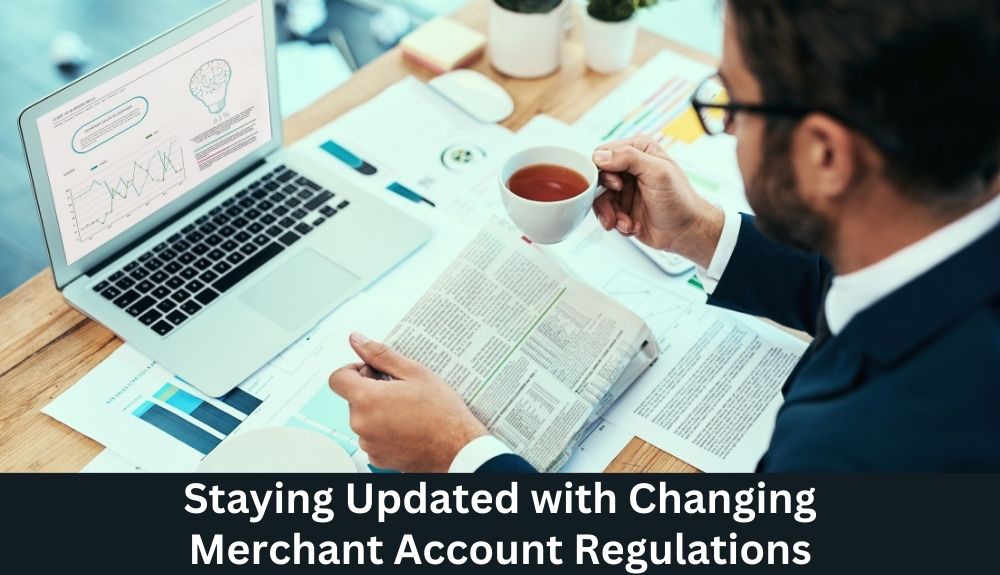
In the ever-evolving world of finance and commerce, it’s crucial for contractors to stay up-to-date with the changing regulations surrounding merchant accounts. By keeping abreast of these developments, you can ensure the smooth functioning of your payment processing systems and stay compliant with industry standards. Let’s explore some key strategies to help you stay updated:
1. Establish Reliable Information Sources:
Subscribe to industry newsletters and publications that focus on merchant account regulations. These sources often provide timely updates and insights on regulatory changes.
Join relevant professional organizations or associations that offer resources and forums for discussing merchant account regulations.
Follow reputable blogs and websites that specialize in finance, payment processing, and merchant services. These platforms often feature analysis and commentary on regulatory updates.
2. Consult with Payment Service Providers:
When selecting a payment service provider, choose one that demonstrates a strong understanding of regulatory compliance. They should have robust systems in place to monitor and adapt to changing regulations. Regularly communicate with your provider to ensure they are keeping you informed about any regulatory changes that may impact your merchant account.
3. Engage with Industry Experts:
Attend industry conferences, webinars, and workshops that address topics related to merchant account regulations. These events often feature experts who share their knowledge and insights on the latest developments. Take advantage of these opportunities to network with other industry professionals and stay informed.
4. Regulatory Compliance Audits:
Conduct regular internal audits to assess your compliance with merchant account regulations. This proactive approach will help identify any areas that require attention or improvement. Consult with legal and financial professionals to ensure your business practices align with the latest regulatory requirements.
5. Monitor Regulatory Updates:
Keep a close eye on regulatory bodies such as financial authorities, industry watchdogs, and government agencies. Regularly visit their websites for news and updates on merchant account regulations. Subscribe to their email notifications or RSS feeds to receive alerts directly in your inbox.
6. Engage in Industry Discussions:
Participate in online forums, industry-specific social media groups, and discussion boards. Engaging in conversations with peers and industry experts can provide valuable insights into the current state of merchant account regulations and any impending changes.
7. Continuous Education:
Invest time in self-education by reading books, whitepapers, and research papers related to merchant account regulations. This not only helps deepen your understanding but also enables you to make informed decisions when managing your merchant account.
15. Resources for Finding the Perfect Merchant Account
When it comes to finding the perfect merchant account for your contracting business, having access to the right resources can make all the difference. Here are some valuable resources that can help you navigate the process and find the ideal merchant account:
1. Industry Associations and Trade Publications:
Reach out to relevant industry associations and trade publications that cater to contractors. They often have valuable recommendations and insights on reputable merchant account providers that understand the specific needs of contractors.
2. Online Directories:
Utilize online directories that specialize in listing merchant account providers. These directories often provide comprehensive information about each provider, including their services, fees, and customer reviews. This can help you compare multiple options and make an informed decision.
3. Contractor Forums and Communities:
Engage with contractor forums and communities to seek recommendations from fellow contractors who have already found reliable merchant account solutions. These platforms are a treasure trove of firsthand experiences and can provide valuable insights into the best merchant account providers for contractors in your specific field.
Benefits of Engaging with Contractor Forums and Communities:
Access to real-life experiences and firsthand knowledge from fellow contractors
Opportunity to ask questions and seek personalized recommendations based on your specific requirements
Chance to build connections and engage with a supportive community of professionals
4. Online Reviews and Ratings:
Explore online reviews and ratings platforms to get an idea of the reputation and reliability of different merchant account providers. Websites like Yelp, Google Reviews, and Trustpilot can offer valuable insights from actual customers, helping you gauge the quality of service provided by various providers.
5. Consult with Peers and Colleagues:
Reach out to other contractors in your network and seek their advice on merchant account providers. Colleagues who have been in the industry for a while can offer guidance and share their experiences, helping you avoid any pitfalls and find the most suitable solution for your contracting business.
16. Choosing the Right Merchant Account for Your Contractor Business
When it comes to running a successful contractor business, having the right merchant account can make all the difference. A merchant account is a crucial tool that allows contractors to accept payments from their clients in a seamless and secure manner. However, with so many options available in the market, finding the perfect merchant account can be overwhelming. To help you navigate through the selection process and make an informed decision, here are some key considerations to keep in mind:
1. Assess Your Business Needs: Start by evaluating your specific payment requirements. Determine the types of payments you want to accept, such as credit cards, debit cards, or online payments. Consider whether you need recurring billing options or the ability to process payments on-the-go using mobile devices. Understanding your business needs will guide you towards the right merchant account solution.
2. Research Reliable Providers: Take the time to research and compare different merchant account providers. Look for providers with a solid reputation, good customer reviews, and a track record of serving businesses in the contractor industry. Consider their fees, transaction rates, contract terms, and any additional services they offer, such as fraud protection or integration with your existing accounting software.
3. Understand Fee Structure: Merchant account providers charge various fees, including setup fees, transaction fees, monthly fees, and chargeback fees. It’s crucial to understand the fee structure and how it aligns with your business budget. Look for transparent pricing models and providers that offer competitive rates without compromising on the quality of service.
4. Security and Fraud Protection: As a contractor, safeguarding your clients’ payment information is of utmost importance. Choose a merchant account provider that prioritizes security and offers robust fraud protection measures. Look for features like encrypted transactions, tokenization, and PCI compliance to ensure the safety of your customers’ sensitive data.
5. Integration and Compatibility: Consider whether the merchant account can seamlessly integrate with your existing payment systems or accounting software. Compatibility with your website or the contractor management software you use can streamline your payment processes and avoid any disruptions to your business operations.
6. Customer Support: Opt for a merchant account provider that offers reliable customer support. In case you encounter any issues with payment processing or need assistance, having access to responsive and knowledgeable customer support can save you time and frustration.
💡 key Takeaway: Choosing the right merchant account is crucial for contractors to efficiently process payments and provide a seamless experience to their clients.
Conclusion
In conclusion, finding the perfect merchant account is crucial for contractors who want to streamline their payment processes and improve their business efficiency. By carefully analyzing the specific needs of your contracting business, considering factors like transaction fees, funding times, and security features, you can make an informed decision that aligns with your goals. Remember, a reliable merchant account provider can offer personalized solutions that cater to the unique requirements of contractors, allowing you to accept payments seamlessly and effectively manage your cash flow. It’s important to prioritize partnerships with providers who understand the challenges of the contracting industry and offer exceptional customer support.



